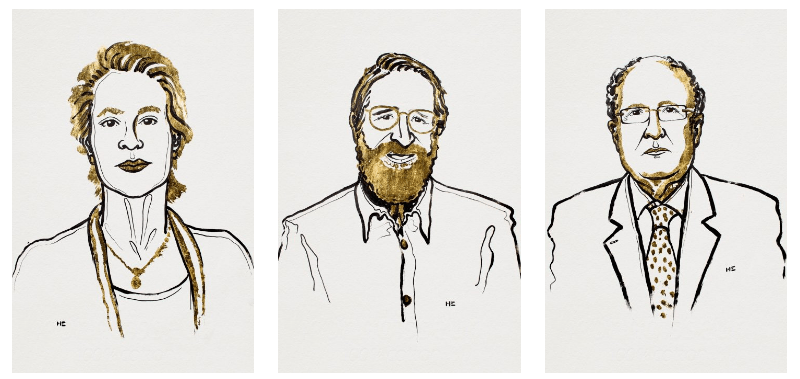

Thinking like Darwin won three scientists the 2018 Nobel Prize in Chemistry on Wednesday. By bringing evolution into the lab, these chemists developed new proteins that have allowed us to develop greener manufacturing techniques and renewable biofuels, as well as drug therapies for autoimmune diseases and some cancers.
“This year’s prize in chemistry rewards a revolution based on evolution,” said Göran K. Hansson, secretary general of the Swedish Royal Academy of Sciences when announcing the honorees. “They applied principles of Darwin in the test tubes and used this to develop new chemicals for the benefit of humankind.”
The Swedish Academy of Sciences awarded half the prize to Frances Arnold at the California Institute of Technology for her pioneering work in the directed evolution of enzymes. These proteins naturally accelerate biochemical reactions in living cells. Arnold first developed her technique to create targeted enzymes capable of performing specific tasks. Already, these proteins have replaced more toxic chemicals currently used to manufacture pharmaceuticals, biofuels, and other products.
The Academy bestowed the other half jointly to Greg Smith, at the University of Missouri, and Gregory Winter, at Cambridge University, for the development and application of a process called phage display. Smith developed the phage display technique in 1985. He utilized a virus that infects bacteria—called a bacteriophage—to develop new proteins. Winter later used this technique to direct the evolution of antibodies. In 2002, this method produced the first phage display drug, prescribed to treat rheumatoid arthritis, psoriasis, and inflammatory bowel diseases.
“These breakthroughs enabled [the laureates] to advance the natural process of cellular evolution occurring on a timescale thousands of times faster than in nature to improve cellular function, improve how medicines interact, and to design cells to be better at making biofuels,” says Dorhout.
Francis Arnold is only the fifth woman in history to receive the Nobel Prize in Chemistry. No female scientist has won since 2009, when Ada Yonath received the honor for her work on ribosomes. Arnold is also the second woman this year to win a Nobel Prize in the sciences, following Donna Strickland’s recognition with the Nobel Prize in Physics.
Dorhout held up her recognition as a great step forward for more representation in chemistry and in the sciences more broadly. “ACS is dedicated to broadening participation in the chemical sciences and diversifying the workforce and professoriate, and that starts with recognizing outstanding accomplishments of people who are traditionally underrepresented in these areas.”
Already, these breakthroughs in the lab have found real-world applications that can affect people’s daily lives. The Academy predicts evolution still has much to teach us.
“We are in the early days of the directed evolution’s revolution,” wrote the Swedish Royal Academy in a release about the prize, “which, in many different ways, is bringing and will bring the greatest benefit to humankind.”
